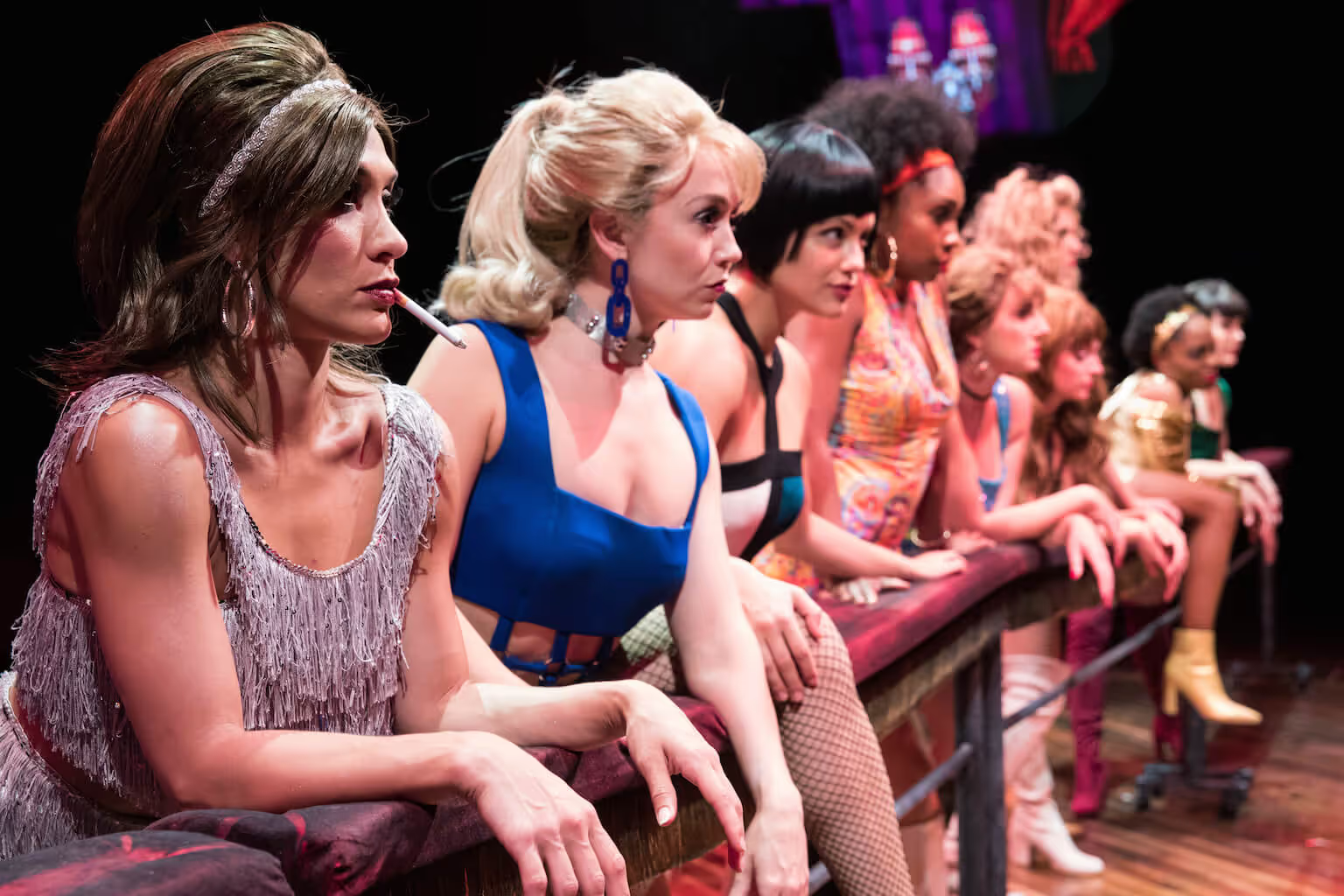At the Marriott, the key to 'Sweet Charity' is to have this dancer rely on herself
★★★
Those we see every day usually know us best. In the case of Charity Hope Valentine — the Candide of the dance hall — that means her colleagues, the ones who get right to the point while stubbornly refusing to pop their corks for every guy they see. “You run your heart like it’s a hotel,” the exasperated Nickie tells Sweet Charity, pretty much stating the central theme of this 1966 Broadway musical, singularly chic and racy for its day. “You’ve always got people checking in and out.”
That’s a funny line, of course. The late Neil Simon wrote the book that accompanies a Cy Coleman and Dorothy Fields score of such incomparable excellence that virtually every song therein was covered by a recording star: Shirley Bassey did “Big Spender”; Sammy Davis Jr. kept “The Rhythm of Life” in his stage shows for decades. On Wednesday night, when director Alex Sanchez’s new production of “Sweet Charity” opened at the Marriott Theatre, I kept scribbling down as many lines as I could, in Simon’s honor.
“Norman Mailer’s not having a poetry reading tonight. Nobody showed up.” (Ah, 1966! When our public intellectuals had name recognition.)
“Why do you believe in love? … I don’t know. You have to have some religion.”
Simon even had the guts to stick a gag right in the middle of the emotional climax of the musical, when the guy, Oscar, who seems to finally be right for the perpetually single and hopeful Charity reveals that he has some kind of purity fetish, telling the poor heroine that he has secretly observed her in the company of other men at work. “I didn’t stay long,” he says, “well, maybe an hour or so.”
That line is the key that “Sweet Charity,” while very much a creature of its day and not devoid of lines and themes that now make you wince, loves and believes in Charity, not Oscar, thus deviating from the contemporaneous rules of musical comedy, which previously dictated that a woman who believed in love had to find a man, not herself.
You only have to listen carefully to Fields’ stunning lyrics to see how shrewdly she was critiquing that patriarchal notion: “I’m the bravest individual I have ever met,” Charity sings, doing all that she can to be a modern woman despite having neither an education nor resources. The show embraced female sexual freedom like few musicals ever have dared, and it leaves you with the sense that the main peril faced by any liberated but lonely heterosexual woman of the 1960s was that the male fish in the pond were all either hypocrites or bores. Or both.
This is a quest musical, and it’s crucial that Charity wins your heart, as Anne Horak, the young Broadway actress in the role at the Marriott, clearly understands. This isn’t by any means a bravura vocal performance (although Horak does fine), but it is beautifully acted — assertive, vulnerable and richly connected — and courageously danced. Charity, a dancer kinda by trade, has to dance — often with no one else on the stage, and Sanchez, who also choreographs, and Horak really make the best of these moments, especially in “If My Friends Could See Me Now.” The pair of them cleverly exploit the intimacy of the in-the-round setting, sculpting Charity so that it feels like she is trying to find the wind of forward motion, while fighting off the kinds of self-objectifying moves that she has been taught that men prefer. It’s a fabulous solo.
And all a very tricky balance, especially given that “Sweet Charity,” which always starts awkwardly, is a musical comedy, but then the very funny Alex Goodrich is on hand as Oscar, a dweeb who is just nice enough to make us all hope he might come through for our heroine. Sanchez also was smart enough to surround Horak with great singers like Dani Spieler, Adam Jacobs and, as Daddy Brubeck, Kenny Ingram. If you’re going for a groovy, Austin Powers-like satirical experience, you won’t leave disappointed. Those sections weren’t all for me, but they were fun.
More serious students of this masterwork will, I think, exit with the feeling that everyone here, especially Horak, wrestled constantly with the blend of classic Broadway objectification and proto-feminist self-actualization present in the material. I think this very distinctive performance took real guts for reasons both obvious and not so obvious; Charity Hope Valentine would surely have approved of her 2018 self.











